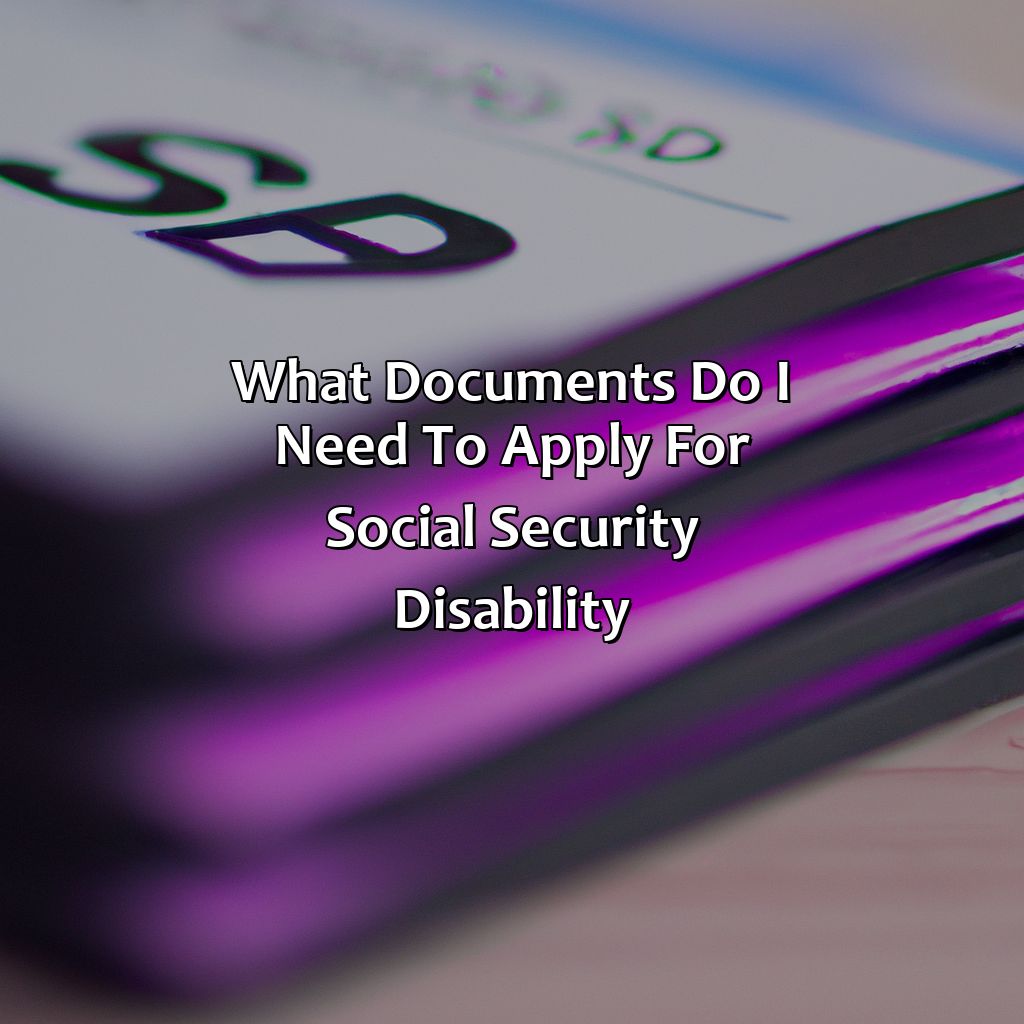What Documents Do I Need To Apply For Social Security Disability?
Key Takeaway:
- Personal Identification Documents are required for Social Security Disability Application: Birth certificate or passport and driver’s license or State-issued ID card are essential when applying for Social Security Disability benefits, as they prove the applicant’s identity and date of birth.
- Medical Records need to be presented while applying for Social Security Disability benefits: Doctor’s reports and laboratory test results, along with hospital records and discharge summary, provide evidence of the medical conditions and physical limitations that qualify for the disability benefits.
- Work History and Income Documents are necessary for Social Security Disability Application: W-2 Forms or tax returns and paycheck stubs or self-employment tax returns indicate the applicant’s work history, confirming employment eligibility and the inability to work in the future due to the disability.
Are you considering applying for social security disability? Knowing the necessary documentation can save you time and stress in the application process. You need to get organized and gather the required documents in order to make a successful application. This article will help you understand what documents you need for social security disability.
Required Documents for Social Security Disability Application
In order to apply for Social Security Disability benefits, the necessary documentation is crucial. Here’s what you need to know about the documents required for a Social Security Disability Application:
- Proof of Identity – This includes a government-issued ID card, passport, or a birth certificate.
- Medical Records – Documentation of all medical evidence related to your disability, including doctor’s reports, test results, and treatment plans.
- Educational and Work History – Proof of your educational qualifications and job history.
It’s important to ensure that all the required documents are submitted along with the application to avoid delays in processing and potential rejection.
Submitting the required documentation in a timely manner is often the key to unlocking Social Security Disability benefits. According to the Social Security Administration, the average processing time for an application for disability benefits is approximately three to five months.
In a recent report by the US Government Accountability Office, it was found that about 50% of disability applications are initially denied, with a majority of these denials due to incomplete or inadequate documentation. Therefore, it’s essential to ensure that all required documents are submitted to avoid such obstacles.
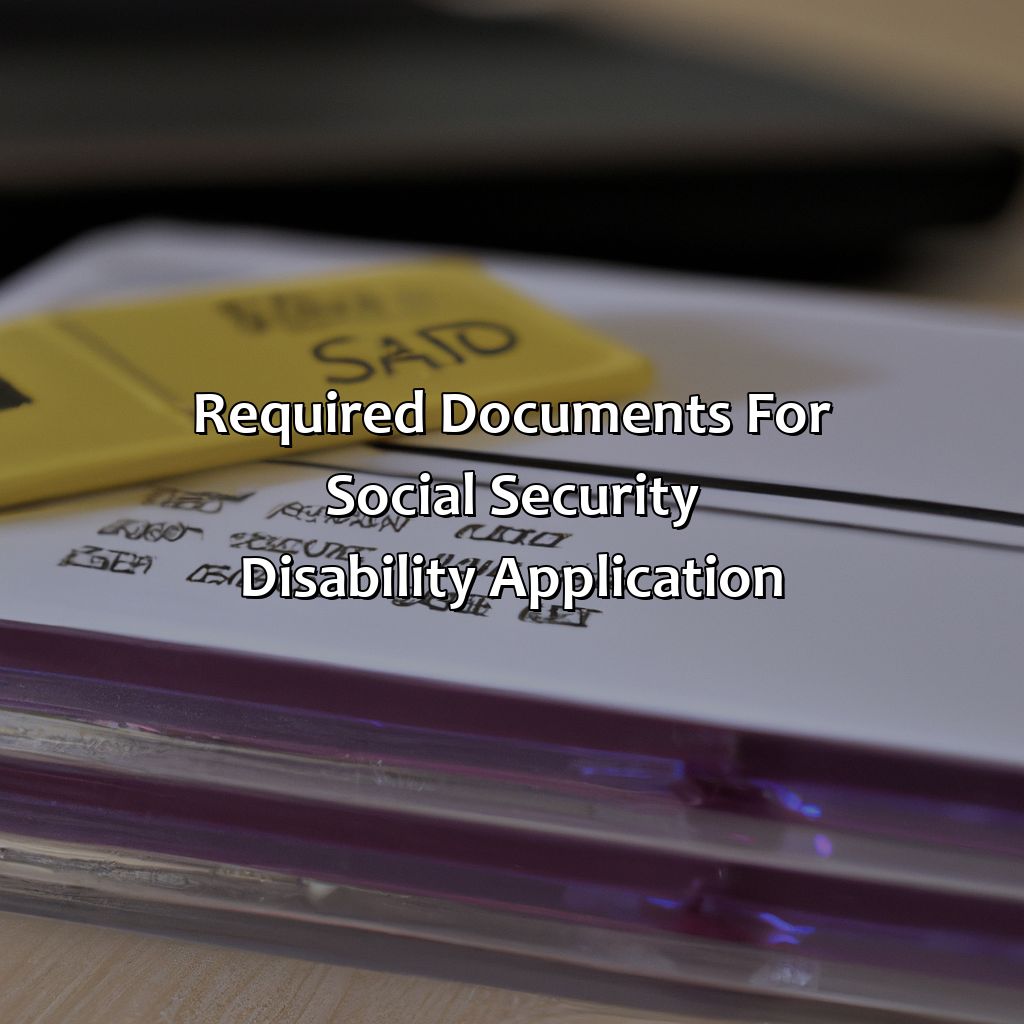
Image credits: retiregenz.com by David Jones
Personal Identification Documents
When applying for Social Security Disability benefits, you will need to provide Personal Identification Documents. These include a birth certificate, passport, or permanent resident card as proof of your identity. It is important to ensure that these documents are current and valid.
It is also important to provide any name change documentation, such as a marriage certificate or divorce decree, to ensure your identity is correctly reflected. Additionally, a valid driver’s license or state ID card may be required as proof of address.
Providing accurate and up-to-date Personal Identification Documents is crucial to expedite the application process and avoid any potential delays.
According to the Social Security Administration website, “in most cases, you must have worked and paid Social Security taxes for a certain length of time to get SSDI benefits.” Therefore, it is essential to provide all necessary documentation to support your eligibility for benefits.
Source: https://www.ssa.gov/benefits/disability/apply.html
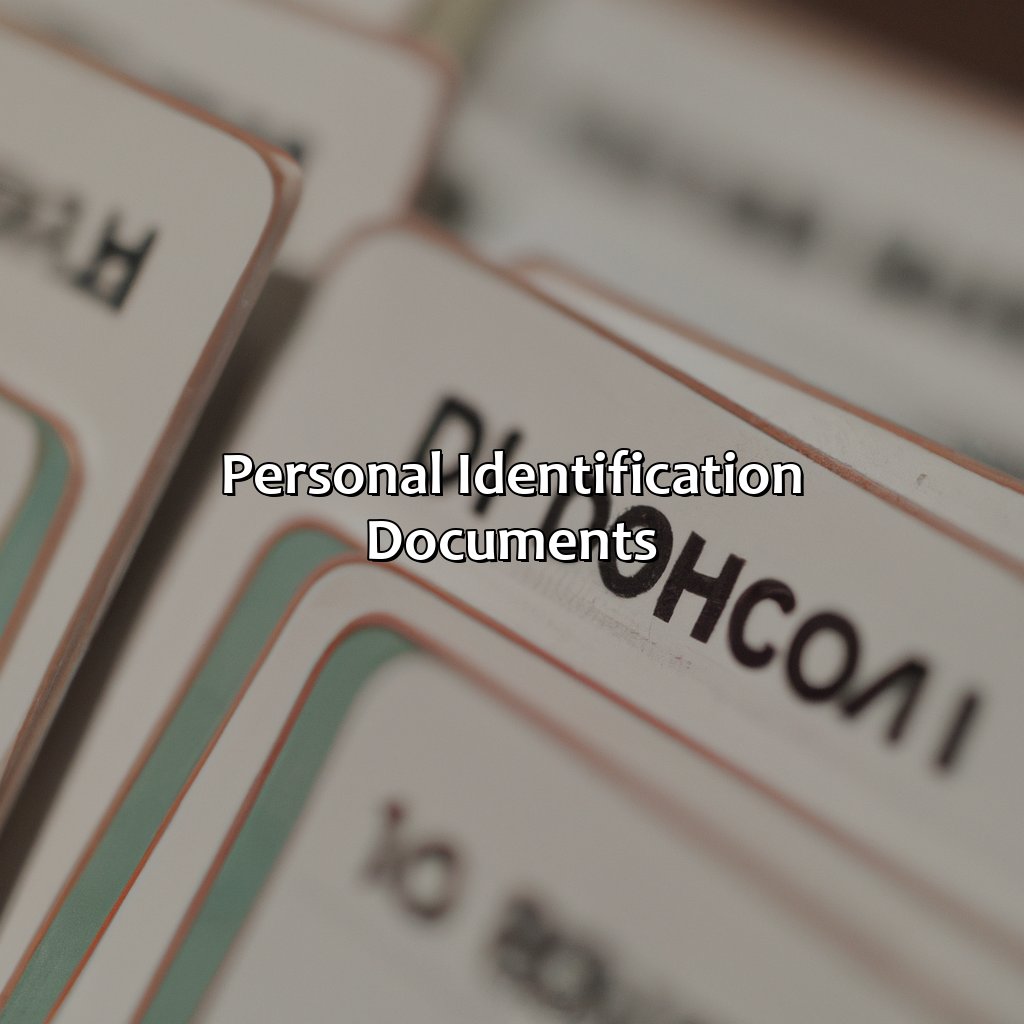
Image credits: retiregenz.com by David Arnold
Medical Records
When applying for Social Security Disability, you need to submit your medical history. This includes records from all healthcare providers you have seen, hospitals you have been treated in, and the results of any medical tests performed. Your medical records should provide detailed information about your condition, including any medications prescribed and how they affect you. Make sure to include all information relevant to your disability, including progress notes, treatment plans, and therapies.
Your medical records should also contain documentation about any limitations that your health condition imposes on your ability to work. This information can help Social Security evaluate your medical condition and determine how it affects your ability to work. It is important to also have a clear and detailed description of how your disability is impacting your daily life and your ability to perform specific tasks.
It is important that your medical records be thorough and accurate. Any inconsistencies or omissions can hurt your chances of being approved for disability benefits. Make sure to review your medical records to ensure that all of the information is correct and up-to-date. You may also want to consider seeking the assistance of a qualified disability attorney to help you with your case.
A true story illustrates the importance of comprehensive medical records. A woman applied for Social Security Disability because she was unable to work due to a heart condition. She had undergone multiple surgeries and treatments, but her application was denied. Upon investigation, her attorney discovered that her medical records were incomplete and did not provide a full picture of her condition. After submitting a complete set of records, the woman was approved for benefits. This shows how crucial it is to provide all necessary medical documentation when applying for Social Security Disability.
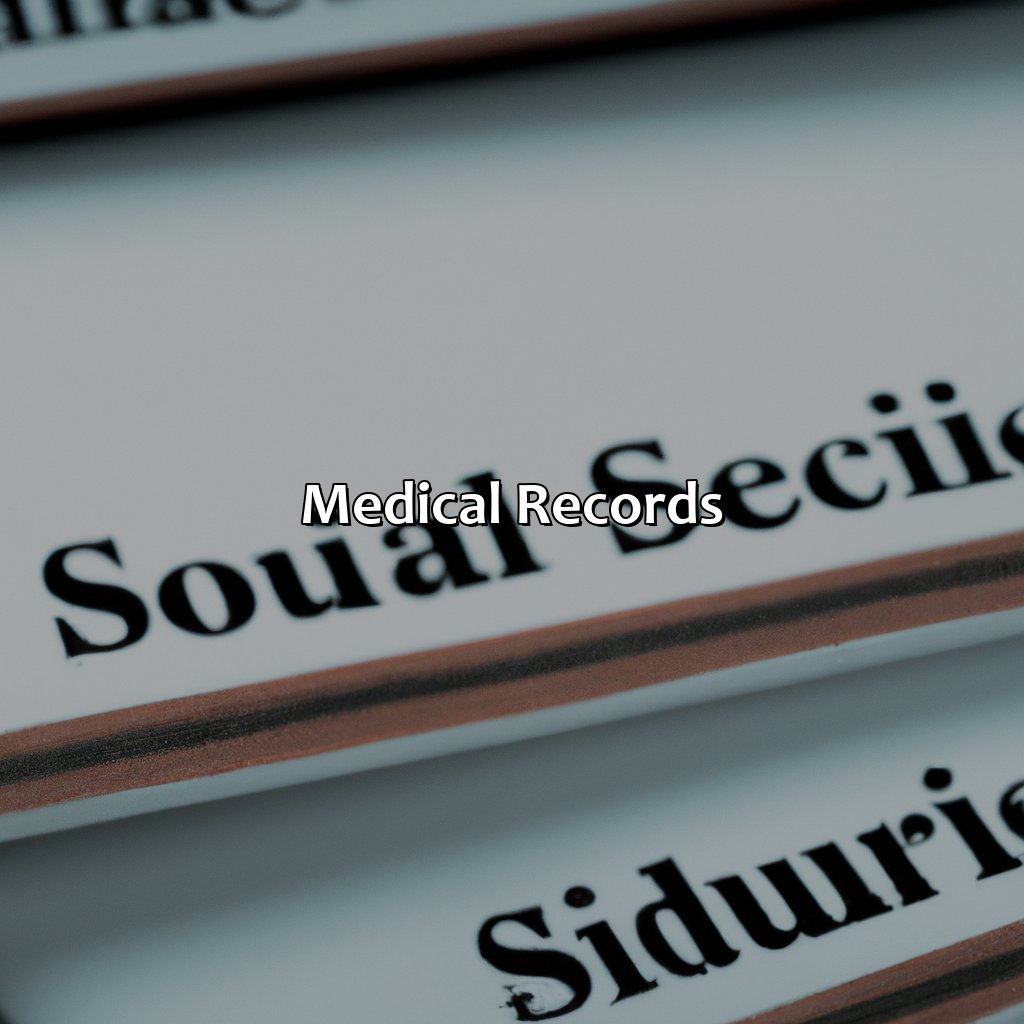
Image credits: retiregenz.com by Joel Jones
Work History and Income Documents
Work and Income Documents: What You Need to Apply for Social Security Disability
To apply for Social Security Disability benefits, you need to provide specific work and income documents. This includes your employment history, tax documents, and medical records. Your work history should show a significant amount of work, performing substantial gainful activity. Additionally, the Social Security Administration will review your medical records, which should show a disabling condition that prevents you from working.
Providing these documents can be challenging, but there are ways to make it easier. You can acquire your employment history through your previous employers, the IRS, or Social Security Administration. You should also gather your tax documents, including W-2 forms, pay stubs, and self-employment tax returns. Medical records may require more effort, but you can obtain them from your doctors or hospitals. It’s also important to submit a detailed account of how your condition affects your ability to work.
To ensure that your Social Security Disability claim is successful, these documents must be accurate and complete. You can seek assistance from qualified professionals, such as attorneys or advocates, who can guide you through the application process. Remember that providing the necessary documents is the first step towards gaining financial support. Keep this information in mind when preparing to apply for Social Security Disability benefits.
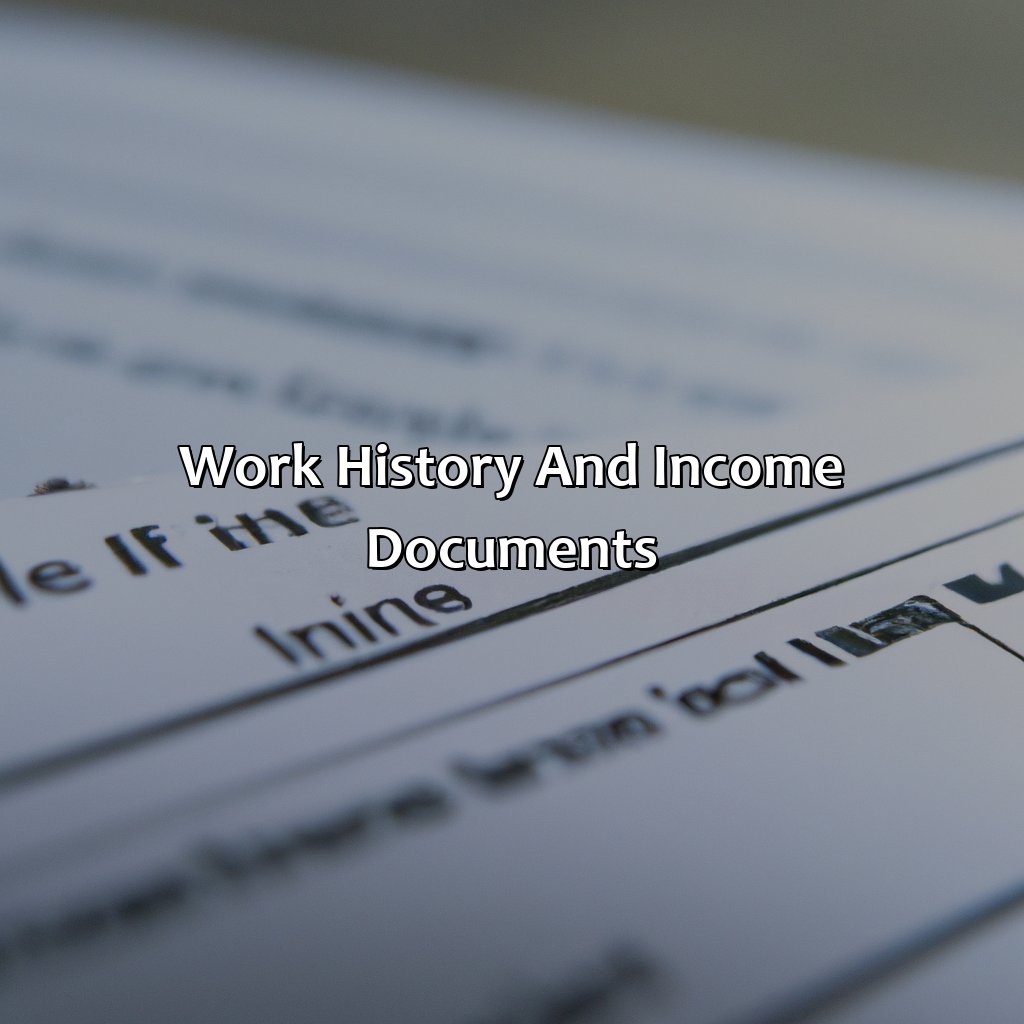
Image credits: retiregenz.com by James Jones
Other Documents
In addition to the required documents for Social Security Disability Benefits, there are other important records that may strengthen your case.
The following list includes some of the important records that can significantly help in strengthening your disability case:
- Medical records: Any documents that provide evidence of your injury or illness, including treatment plans, medication lists, and hospital discharge papers.
- Employment records: W-2 forms, pay stubs, and tax returns are useful in showing your work history and loss of income due to disability.
- Educational records: Evidence of any job training, special education, or vocational rehabilitation you have undergone.
- Legal records: Documentation of any previous legal proceedings, settlements, or workers’ compensation claims related to your disability.
- Other records: Any other documents that provide further evidence of your disability, such as treatment notes from a mental health professional or statements from family members or friends regarding your limitations.
It is important to have all necessary documentation organized and readily available. Consider discussing your case with a disability advocate or attorney to determine what additional documents may be helpful. Remember, the strength of your case is largely dependent on the evidence you provide. Providing comprehensive documentation can increase your chances of receiving Social Security Disability Benefits.
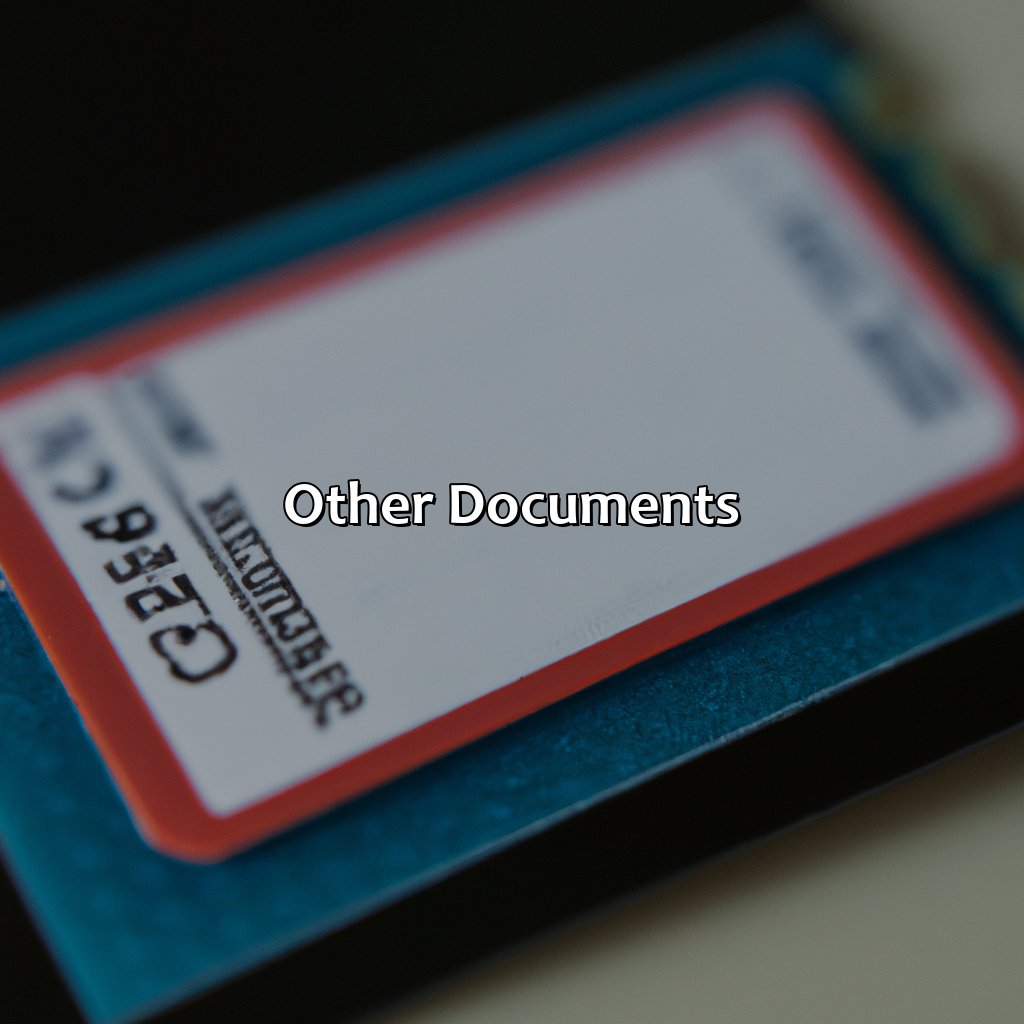
Image credits: retiregenz.com by Adam Arnold
Five Facts About What Documents Do I Need to Apply for Social Security Disability:
You will need to provide documentation of your medical condition, including doctor visits, hospitalizations, and medications taken. (Source: Social Security Administration)
You will need to provide documentation of your work history, including W-2 forms, tax returns, and pay stubs. (Source: Social Security Administration)
You will need to provide a list of all your medical providers and contact information. (Source: Social Security Administration)
You may need to provide documentation of any workers’ compensation benefits or other disability benefits you are receiving. (Source: Social Security Administration)
Additional documentation, such as birth certificates and marriage certificates, may be required if you are applying for Supplemental Security Income (SSI). (Source: Social Security Administration)
FAQs about What Documents Do I Need To Apply For Social Security Disability?
What documents do I need to apply for Social Security disability?
In order to apply for Social Security disability benefits, you will need to gather several important documents. These include:
- Your Social Security number
- Medical records and documentation related to your disability
- Work history and proof of employment
- Proof of income, including tax returns and pay stubs
- A list of medications you are currently taking
Do I need to provide all of these documents when I submit my application?
No, you do not need to provide all of these documents when you initially submit your application. However, it is important to start gathering these documents as soon as possible, as you may be asked to provide them at a later date. The more complete your application is, the smoother the process will likely be.
Are there any other documents I may need to provide?
Yes, there may be other documents that are specific to your case that you will need to provide. This may include documentation related to your disability from your healthcare provider, or information about your education or job training.
Can I apply for Social Security disability online?
Yes, you can apply for Social Security disability benefits online. This is typically the easiest and most convenient way to apply. However, you can also apply in person at your local Social Security office or over the phone.
How long does it take to get approved for Social Security disability benefits?
The length of time it takes to get approved for Social Security disability benefits can vary depending on your specific case. Some people are approved very quickly, while others may wait several months or even years for a decision. The best way to expedite the process is to ensure you have a complete and thorough application.
What happens if my Social Security disability application is denied?
If your Social Security disability application is denied, you have the right to appeal the decision. This typically involves a hearing in front of an administrative law judge, where you can present evidence and testimony in support of your claim.
 Checkout this IRS Loophole
Checkout this IRS Loophole 
